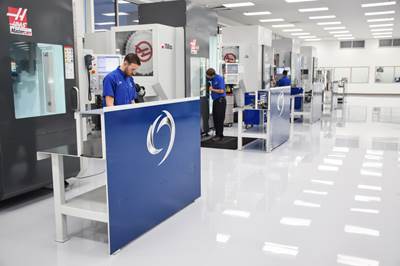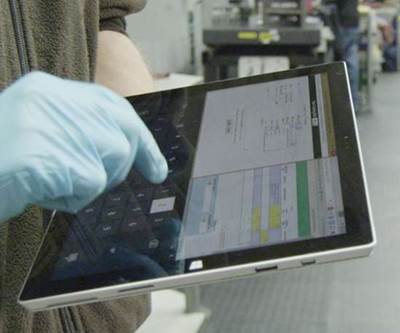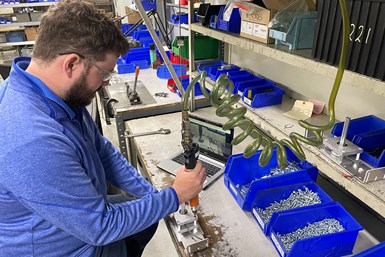
Instructions and photos accessible within McCormick Industries’ new ProShop ERP system are now available to assembly personnel whenever they might need to access them as Controller Nathan Van Deraa demonstrates here. Similarly, computers with access to the ERP system are found at every machine tool.
An increasing number of machine shops are moving on from simple spreadsheets as well as manufacturing resource planning (MRP) platforms to more encompassing enterprise resource planning (ERP) software as a means to better manage the entirety of their operations from the front office to the shop floor.
In McCormick Industries’ case, moving from an existing ERP software offering what it perceived to be limited functionality to another cloud-based system has provided both management and shopfloor personnel easier access to and visibility of vital operations information in one platform. This greatly reduces wasted time searching for information or direction by those on the shop floor (as well as the shop’s reliance on paper documentation), while offering the convenience for managers to access real-time data about a job, work order or customer, as examples, from a single source.
But, even beyond that, McCormick Industries found that the new ERP software has enabled it to capture tribal knowledge from its experienced personnel before those folks retire or leave the company for any unexpected reason. This is in the form of photos and detailed instructions for any process that can be added to and accessed from the ERP system. I learned about two examples during a recent visit to the Appleton, Wisconsin, shop.
Data Visibility, Accessibility
Gary Hermsen, company president, has been with McCormick Industries for nearly 10 years and purchased it in early 2019. McCormick Industries specializes in Swiss-type turning having 10 such machines from Marubeni Citizen-Cincom, but has traditional CNC turning and milling capabilities as well. The shop serves customers in general industrial, medical and defense markets, but is eyeing aerospace work more these days.
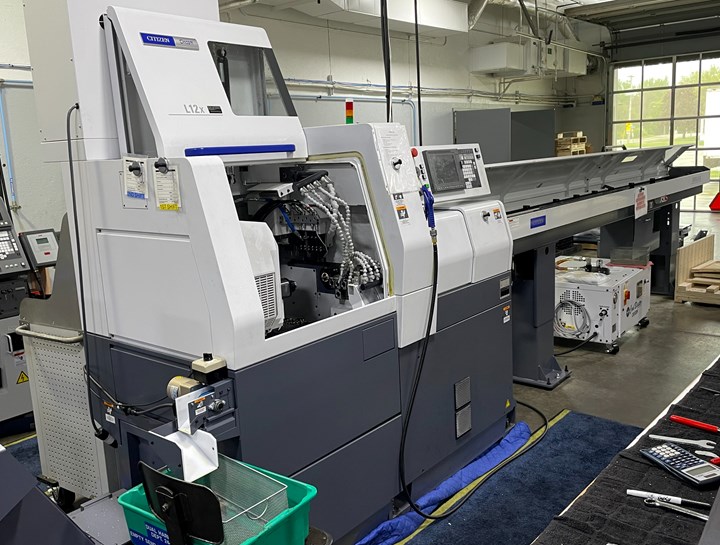
McCormick Industries specializes in Swiss-type machining having 10 machines from Marubeni Citizen-Cincom. The latest, an L12X, features the builder’s low-frequency vibration (LFV) technology which is designed to avoid the problem of spiraling chips, entanglement of chips and tooling built-up edges.
One change Hermsen hoped to make soon after purchasing the company was upgrading to a new ERP software. He says with the existing software, key data still might be contained on separate Word documents or Excel spreadsheets stored in different folders on the network. This made finding data for a given job or customer challenging and time consuming.
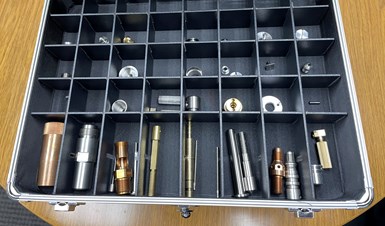
The shop primarily serves general industrial customers, but is pursuing aerospace work more these days.
Nathan Van Deraa, the shop’s controller, headed the efforts to identify new ERP software that would ideally enable data to be stored in one location while providing better data visibility and accessibility. After considering a few ERP solutions, McCormick Industries chose cloud-based ProShop ERP, which the software maker refers to as a “digital ecosystem” that combines ERP, a manufacturing execution system (MES) and quality management system (QMS) to meet the specific needs of machining job shops.
In fact, ProShop was originally developed in-house by a job shop to serve its own specific needs. Van Deraa notes that this is one aspect of the platform he appreciated.
According to ProShop, its paperless digital operating platform (DOP) integrates all departments in a shop from estimating to shipping. The goal is to replace multiple software programs so data can be accessed from only one. The integrated MES system can track tooling, fixtures, work cells, personnel, part programming information and more in real-time. The QMS function features various modules pulling data from the ERP/MES systems which then can be used to create reports reflecting preventive and corrective actions, and generate audits, capturing all aspects of the manufacturing process for complete quality reporting.
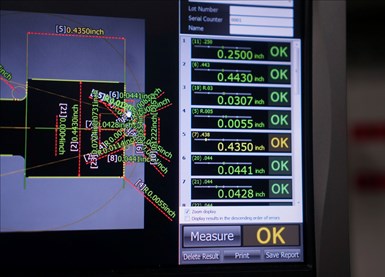
The shop’s QMS is part of the ERP system. For some parts, it uses a vision system to enable fast, automated inspection of parts to speed inspection. (Photo Credit: McCormick Industries)
“The ability to access data within the system with just a few mouse clicks really is a big benefit for us,” Hermsen says. In fact, he notes that this capability was very helpful during a recent ISO audit as the shop was able to find and present a wealth of documentation within the ERP system to the auditor as requested.
ProShop is available to shopfloor personnel by way of computers at every machine tool and in other departments. Presenting information about a job, such as material availability, to those on the shop floor often eliminates the need to ask questions of a manager.
But one unexpected benefit McCormick Industries discovered is the ability to capture tribal knowledge of its experienced shopfloor employees. It actually learned this the hard way in the following two examples.
ERP enables data to be stored in one place, offers clear data visibility and easy data accessibility.
One is packaging. For a number of years, one man handled all of the shop’s packaging duties. When he unexpectedly left, he took all the knowledge of the packaging processes with him. It’s not something that others couldn’t figure out, but there were nuances with regard to protecting products in certain ways, for example, about which others might not know. Having detailed instructions with photos in the ERP system (and continuing to add them for new jobs) now enables any available person to properly package completed jobs.
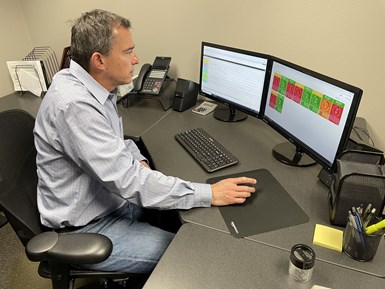
All of the shop’s Swiss-type lathes are connected via MachineMetrics machine monitoring system to enable Gary Hermsen and shop managers to monitor machine downtime, view job progress and so on.
Another is assembly. McCormick Industries offers mechanical assembly for some customers, which is more of a value-added service rather than a huge profit center. Still, similar to the packaging situation, for five years, one man handled all assembly work for the shop. Perhaps it was a form of job security in his mind, but he was very secretive about the processes, where fixtures and tools were located and so on. Management realized the need for proper documentation of the procedures for assemblies that the shop had been creating for years. While doing that, the processes were photographed and documented and entered into the ERP system so that others could be more easily cross-trained. This is helpful because there’s not a sufficient amount of assembly work to dedicate a full-time person to that department. It’s nice that now a variety of employees can step into that role when needed, Hermsen notes.
Next steps
“We’re not using everything that we can use ProShop for at this point,” Van Deraa says. “However, like the packaging and assembly examples, we’re starting to capture a lot of shopfloor tribal knowledge and adding it to the system. We also are empowering our employees to add to this type of centralized knowledge base. It’s a work-in-process, but we’re on our way.”
Related Content
Precision Machining Technology Review: August 2024
Production Machining’s August 2024 technology showcase includes some of the latest technology from SW North America, Tsugami, Siemens, Select Manufacturing Technologies, Hurco and ECI Software Solutions — all on display at IMTS 2024.
Read MoreProShop Provides ERP Technology to Purdue Engineering School
The ProShop Digital Ecosystem will be used as the inventory management and ERP system at Purdue University’s Industrial Engineering School.
Read MorePrecision Machining Technology Review: November 2024
Production Machining’s November 2024 technology showcase includes some of the latest technology from Vericut, Hurco, the L.S. Starrett Co., LNS North America, Fryer Machine Systems and MachineMetrics.
Read MoreShopGuru Software Supports Organized CNC Machine Operations
IMTS 2024: ShopGuru’s digital work instruction software offers a robust, secure solution that can enhance machining efficiency and accuracy.
Read MoreRead Next
Create a Virtual Tour of Your Shop
Open houses and tours are techniques leading CNC machine shops use to market their operations to prospective new customers and new hires. It’s also possible to do this digitally like Roush Yates Manufacturing Solutions has, which is helpful in these strange days of social distancing.
Read MoreVIDEO: Emerging Leaders’ Viewpoints on Training and Retention
The 2022 Emerging Leaders focus on new strategies for hiring, in-house training programs and retention plans for the young generation of workers as well as the valuable employees already in place.
Read MoreUse Your Machine Shop Management System as a Sales Tool
Why not leverage an effective shop management system for your sales/marketing advantage in today’s competitive market?
Read More




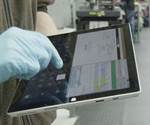







.jpg;maxWidth=300;quality=90)







